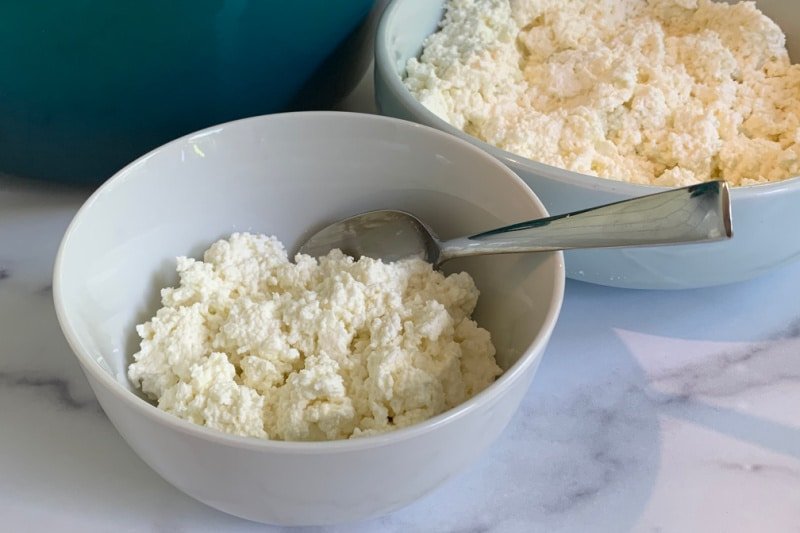Is cottage cheese good for us?
Are you a fan of cottage cheese? Cottage cheese is making a comeback.
I’m not but I know many people who are. In this insightful article from Zoe.com they explain what cottage cheese is and why cottage cheese is healthy. It can aid muscle and tissue repair and maintenance, help with weight management and hunger.
My advice for the best option of cottage cheese is one with live cultures and no added sugar or salt.
the traditional manufacturing process adds acidifying live cultures such as Lactococcus lactis to skimmed milk to ferment it and form coagulated curd, which is then cooked on a low heat before most, but not all, of the whey is drained.
● Why is cottage cheese trending again?
It’s good for your health, cottage cheese is considered a ‘complete protein’ as it contains all the essential amino acids, It’s high in B vitamins, which help to convert food into energy, and is also important for skin health and brain health, and high in calcium for strong bones and teeth.
If you’re looking for a low-calorie, high-protein, more satiating food that is good for the gut, cottage cheese is a great option.
It could help you to lose weight — and curb belly fat
Cottage cheese is lower in fat than most other cheeses — standard cottage cheese contains 4-6 per cent fat and the low-fat version just 1-2 per cent fat — and approximately 70 per cent of its calories are from protein. “Protein-rich foods play an important role in keeping your appetite in check so that you feel fuller for longer,” says Dr Linia Patel, a dietician and spokeswoman for the British Dietetic Association. “There is evidence that it also helps to regulate insulin sensitivity, which means better blood sugar control and a lower risk of storing fat, especially around the middle.”
Adding cottage cheese to a carbohydrate-rich meal will help to prevent a sharp rise in blood sugar after you have finished eating. “The high protein content of cottage cheese helps to slow down the rate at which carbohydrates from a meal are released into the bloodstream,” Ruani says. “And the result is fewer of the sugar highs and lows that cause us to feel hungrier and eat more later on.”
Two tablespoons in the evening can boost lean-muscle tissue
Consuming 30g — about two tablespoons — of protein-rich cottage cheese 30-60 minutes before going to bed has been shown to boost muscle health and recovery as effectively as a protein shake, a study at Florida State University found.
“When combined with the right resistance-training programme, a diet high in protein can help you to increase muscle mass and lose surplus fat,” Patel says. “About 80 per cent of the protein in cottage cheese is casein that is absorbed slowly to support metabolism and muscle synthesis overnight.”
Eating 100g a day will boost gut health
As a fermented food, cottage cheese can be packed with live cultures providing gut-friendly probiotics, although manufacturers in the UK don’t yet provide that information on the label. “At the moment, it’s a bit of a guess as to how many viable live culture counts there are in a serving,” Ruani says. “But some studies indicate that cottage cheese may contain more than one billion viable counts per 100g.” Consuming at least this amount a day has been shown to boost gut health, support the immune system, help to reduce cholesterol and improve mood.
Not everyone finds it gut-friendly, though. “Cottage cheese is high in the milk sugar lactose, and in people with an intolerance who struggle to digest lactose it can cause digestive problems, such as bloating, gas, stomach pain and diarrhoea,” Patel says. “If this is the case, you may want to reduce the amount you eat; some research suggests that people with lactose intolerance can consume up to 12g of lactose in a single sitting with no side-effects and 100g serving of cottage cheese provides 3-4g of lactose, so start with that.”
● Is cheese good for you? It might be healthier than you think
For the greatest health benefits, choose low-salt, low-sugar and low-fat options
Sodium kills beneficial bacteria not just in the cottage cheese itself but also in the gut. “This means that lower-salt varieties of cottage cheese are better for probiotic survival in the cheese and better for protecting your gut microbiome,” Ruani says. Choose a cheese with no more than 4 per cent total salt content on the label. Flavoured varieties can also contain added sugar. “It’s best to add any extra ingredients to plain cottage cheese yourself,” Brecher says.
Not only will low-fat cottage cheese save on calories — there are typically about 102 calories per 100g of full-fat cottage cheese and just 58 calories in the low-fat variety — but making the switch could be better for your gut. “Because reduced-fat cottage cheeses contain more moisture they often provide a more favourable environment for Lactobacillus and other probiotics to survive during transport and storage,” Ruani says. “And while all cottage cheese can be kept for about 28 days, its probiotic content usually starts declining after eight days of being produced, so the sooner you finish the pot, the better.”
Recipe: cottage cheese ice cream — 100 calories
Blend 1 tub of full-fat cottage cheese with a splash of vanilla extract. Fold in 180g of chopped strawberries and pour into a tub. Freeze for 2-3 hours minimum. Add toppings, from peanut butter to chocolate chips and banana.


